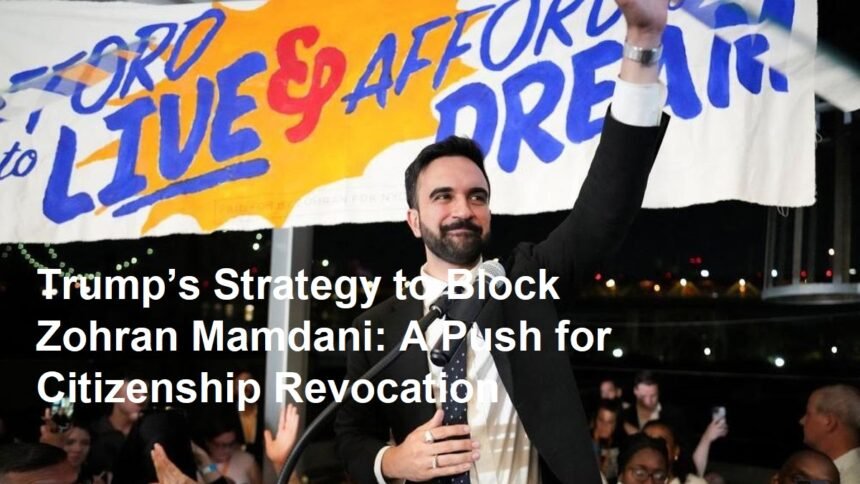Introduction
In the heated climate of American politics, no move appears too drastic when power is at stake. Recently, whispers have grown louder about former President Donald Trump and his associates seeking extreme avenues to undermine political adversaries. At the heart of the latest controversy is Zohran Mamdani, a progressive lawmaker and high-profile voice in New York politics, whose stance on issues such as Palestine, social justice, and immigrant rights draws sharp criticism from conservative factions. Trump and his circle are now rumored to be weighing options as radical as attempting to revoke Mamdani’s U.S. citizenship—a playbook that raises serious alarm.
The Target: Zohran Mamdani’s Rising Influence
Zohran Mamdani’s ascent in American politics has been anything but ordinary. An openly socialist lawmaker with roots in both India and Uganda, Mamdani’s advocacy for the underrepresented has set him apart from the political mainstream. He has rallied support for marginalized communities, questioned longstanding foreign policies, and demanded accountability from entrenched power structures. Such activism, coupled with sharp rhetoric, has made him a lightning rod for right-wing critics.
Trump’s Calculated Countermove
For Trump and allies, Mamdani’s visibility represents both a challenge and an opportunity. The former president has repeatedly demonized progressive figures, painting them as threats to American values and security. With a fiercely loyal base attuned to messages of nationalism and suspicion toward dissenting voices, Trump’s camp sees political capital in targeting high-profile activists like Mamdani.
In private circles, some strategists have reportedly floated the idea of exploiting ambiguous legal pathways to question Mamdani’s citizenship status. While constitutionally fraught and likely to encounter fierce legal resistance, the mere threat of such action serves multiple purposes: intimidating other activists, dominating media cycles, and energizing the conservative grassroots.
The Legal and Ethical Minefield
The concept of stripping an American of their citizenship is not only extreme, but also extraordinarily difficult to implement. The Fourteenth Amendment provides robust protection, stating plainly that all persons born or naturalized in the United States are citizens. Revocation is limited to cases of fraud or treason, and would require Herculean legal justification. However, in the current climate of political brinkmanship, even outlandish proposals can spark genuine anxiety among targeted communities.
Civil liberties organizations and immigrant advocates have already voiced outrage at the possibility of this maneuver. Human rights groups argue that the mere suggestion of revoking citizenship based on political beliefs is antithetical to core American values. This specter of a weaponized citizenship policy echoes dark periods in history, prompting many to recall the need for unassailable legal protections.
Public and Political Reactions
The specter of a campaign to strip Mamdani of citizenship has rapidly escalated in media and online discourse. Supporters highlight Mamdani’s commitment to democracy and the importance of dissent in a healthy republic. They warn that targeting individuals for their activism is a threat that could chill political engagement nationwide. Detractors, meanwhile, seize on the polarizing nature of Mamdani’s positions to justify aggressive tactics.
While the legal community widely agrees that the path to revocation is all but impossible, political opponents argue that the underlying intention—silencing progressive voices—is what truly matters. Even if such campaigns fail in the courts, they can succeed in making activism riskier and more personally costly.
The Broader Stakes of Citizenship Weaponization
This episode illustrates a troubling trend in U.S. politics: the use of legal intimidation and procedural threats to deter opposition. When citizenship itself is politicized, the consequences ripple beyond a single individual—affecting immigrants, activists, and anyone who dares to challenge the status quo. As history has shown, the greatest tests of democracy arise not only from external threats but from internal efforts to define who counts as an American.
As Mamdani himself has noted, standing up against such tactics is an act of faith in the American promise. And as this chapter unfolds, its outcome may well shape the boundaries of political participation for generations to come.












